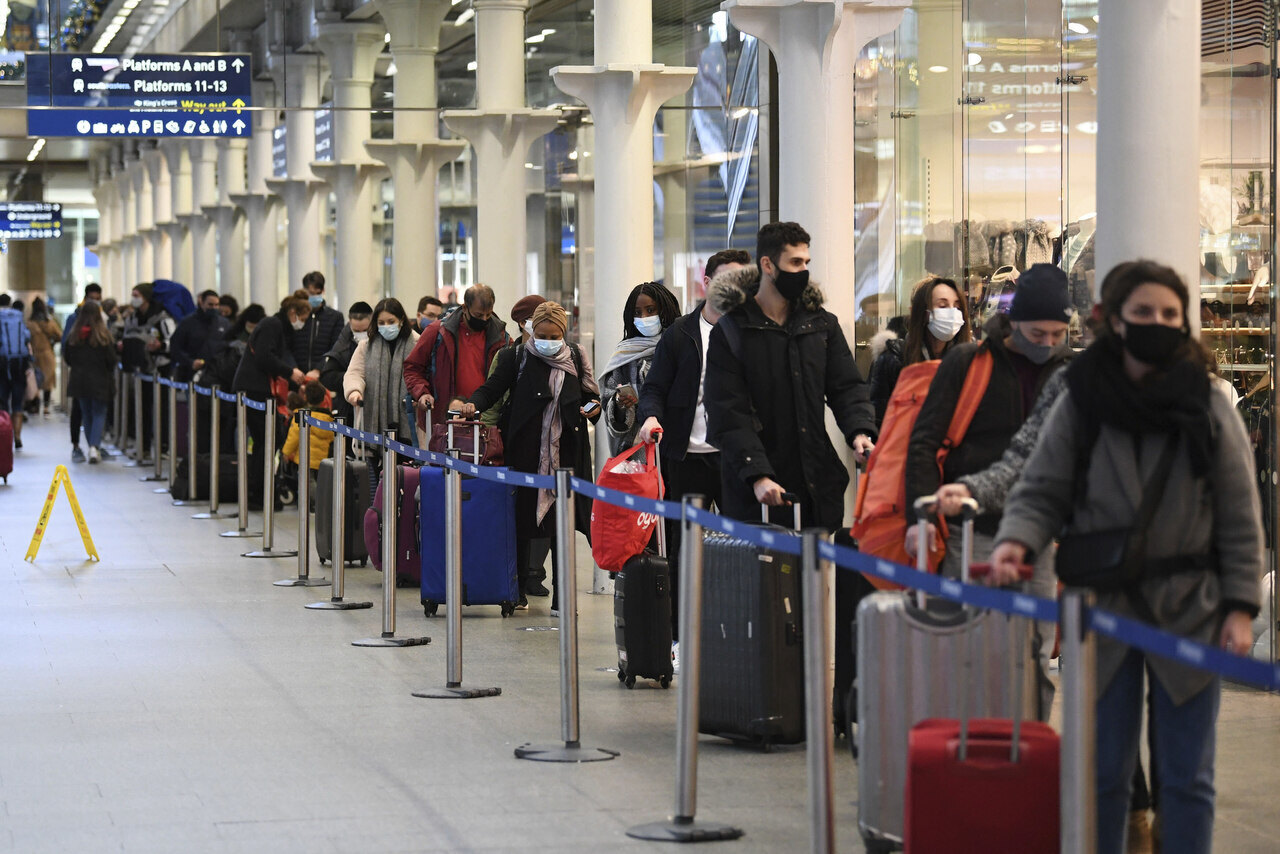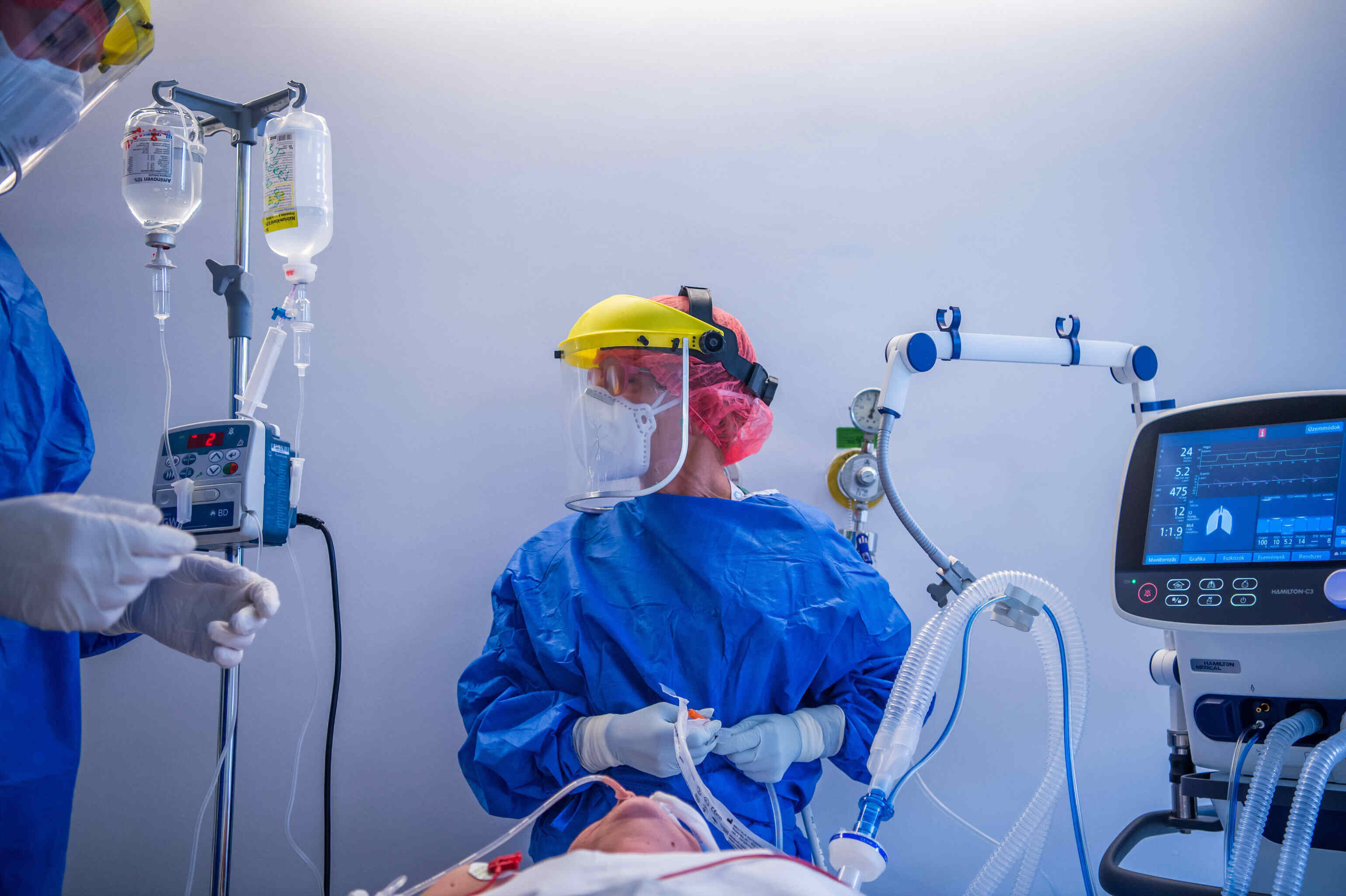Hungarian hospitals ventilate coronavirus patients with the help of a snorkelling mask
The new innovative technique was first used in Szolnok by a young local doctor, based on the suggestion of a colleague from the isolation hospital of Kiskunhalas.
Hetényi Géza Hospital of Szolnok is doing the ventilation of coronavirus patients in a distinctive way. Dr László Juhász, anaesthetist and intensive care specialist, gave an interview, shedding light on the innovative and successive method used by the care unit.
“We got the idea from a doctor of the isolation hospital in Kiskunhalas who himself saw the technique in action in Italy. They told us in details on the phone how it is executed. With the supervision of Dr Gábor Bencsik, chief physician, we introduced the method that is used in several hospitals in Hungary” – told the doctor, who has recently passed the bar exam, to szoljon.hu.
Then he went on explaining that the condition of patients suffering from pneumonia caused by Covid or any other illness can get so severe that conventional methods of oxygen therapy can not guarantee the appropriate level of oxygen in their body. This is when ventilation enters the scene.
“The conventional method is called invasive ventilation when a plastic tube is inserted in the windpipe of the patient through which we do the ventilation. The patient needs to be anaesthetised. Moreover, the process itself can have critical complications, so we try to avoid it whenever it is possible to do so.”
According to the doctor, a better method for this is the so-called non-invasive ventilation performed by the use of a mask.
“In this case, we put a mask on the patient that fits the face perfectly, through which we supply him with air containing a high level of oxygen. Meanwhile, we can control pressure in the windpipes as well. No sedation is needed, and all side-effects and consequences of ventilation can be avoided.” – as Dr Juhász explained.
Several masks to perform this procedure exist on the market, but according to the doctor, these are almost impossible to purchase right now. In normal conditions, the hospital of Szolnok uses four pieces a month, but lately, it has occurred that they needed eight pieces a day.
“Italian doctors started to utilise these diving masks originally used for snorkelling. We need the air pumped into the mask to stay inside when the diver needs water not to get inside. The problem is similar. So I went into a popular store of sports equipment, and I bought some masks. Then I bumped into the next problem. The pipe of the snorkel mask is rectangular when that of the ventilation machine is round.” – said the doctor.

snorkelling mask – Decathlon
Then he was told by a colleague how a group of locals helped the hospital in Spring with a 3D printer printing face shields, so he contacted them, and by the afternoon they had the solution in their hands in the form of a printed adapter fitting the mask and the ventilator pipe perfectly. The prototype ready to be used and tested was done in 12 hours.
“This printed adapter can be mass-produced in the fastest, simplest way. It was the best choice in this situation. Since then we can produce it very quickly, even in 3 hours, the only question left is the colour of the component.
We have been recently told that one of the patients who was supplied with oxygen using the new mask is already recuperating at home. It feels good that the work in which we took a small part has a positive outcome.”
– said Ádám Csaba, who produces the component for the masks.
With the current situation in view, the coronavirus related state of medical preparedness is expected to be maintained in the country—more information to be found here.

Read alsoNew coronavirus mutation: Hungary bans flights from UK
Source: szoljon.hu
please make a donation here
Hot news
What happened today in Hungary – 26 July, 2024
Drama: number of births in a 20-year low in Hungary
Yay or nay? – 6 odd Hungarian delicacies that make our skin crawl
Budapest tourism “exploded” this past weekend
Container transport in Budapest may stop: How will this affect Hungarian economy?
Minister: Hungary will protect its territory by every means possible




